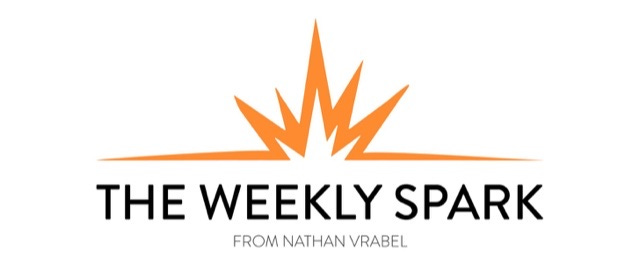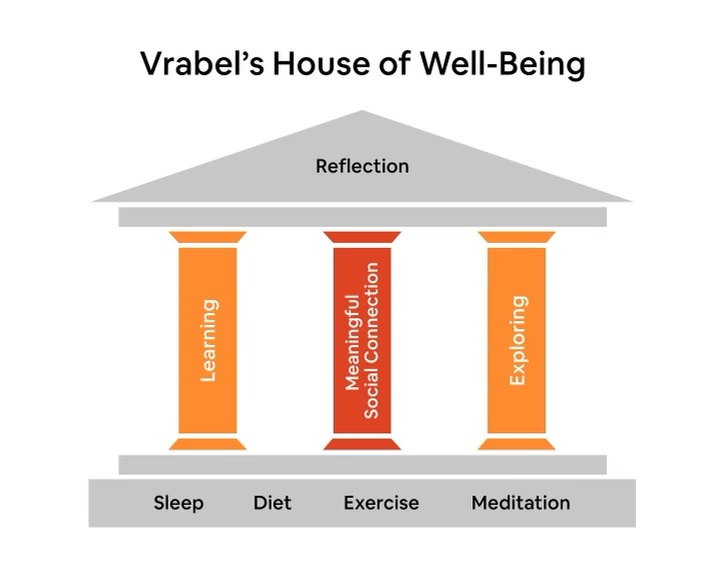Weekly Spark #240: Overcoming Cognitive Biases for Better Decisions
This past weekend, I had the opportunity to listen to a speech on cognitive biases and their effects on sound decision making. I’m sure this is news to no one, but there are a lot of reasons why we make suboptimal decisions with significant amounts of distortion. With so much noise in the modern day, it’s even harder to think clearly and make sound decisions. I found the talk intriguing and relevant for us on the day to day, both personally and professionally, as we seek to make better, more informed, rational, and clear decisions, so I wanted to share a few thoughts and reflections. Each of the topics are certainly worthy of their own detailed breakdown in a separate Weekly Spark, but for now, enjoy this preview and let me know any thoughts/feedback.
Loss Aversion - We are far more likely to perceive situations as worse if they are perceived as losses rather than gains. Given the risk averse tendency of humans, the perceived and anticipated losses are felt more intensely than the perceived benefits and anticipated gains of certain decisions. Losing hurts more than winning feels good. We anticipate that and act accordingly. The next time you are faced with a decision that contains “wins” and “losses,” be sure they have been appropriately categorized and their magnitudes fully understood. How someone is framing the situation may have a big impact on how we feel about it. Categorize the gains and losses appropriately and analyze decisions and opportunities as they are, at face value.
Halo Effect - Positive impressions of people, brands, and products in one area lead us to have positive feelings in another area. Research shows that by simply finding someone attractive, we are likely to believe that their ensuing actions have positive intentions. Once someone has started and sold a $1 billion company, we are far more likely to believe they’ll do it again. Once someone has established themselves as ethical and trustworthy, we are likely to trust them in the future. Once someone has performed strongly in something, we are far more likely to believe they’ll do it again, even in other domains. Every investor knows past performance is not indicative of future results. Approach people and decisions with that in mind. Analyze decisions and opportunities as they are, at face value.
Anchoring Bias - We can sometimes rely too heavily on the first piece of information that we are given about a topic. Even when that first piece of information can be massively wrong, there’s still a psychological anchor to it. If I’m in a meeting, and the first person votes “yes” to support a decision, I’m far more likely to say yes even if I showed up to the meeting strongly believing the right answer was no. It’s important to stick to our initial thoughts and perceptions and not be swayed by those of others. As Norman Reedus said, “the dogs with the loudest bark are the ones that are most afraid.” Thinking independently, autonomously, and giving our perspectives as they are, regardless of the anchors that have been placed before, will result in sounder decision making. Analyze decisions and opportunities as they are, at face value.
Confirmation Bias - This is one of the most troubling trends in our modern world from my observations in my day-to-day life (I will write a longer form weekly Spark on this in the future). People often search for, interpret, favor and recall information in a way that confirms or supports one's prior beliefs or values. What I see very often is people come up with this idea in their head and they anchor to it. There’s really no changing their mind. They are only out to find information that will confirm it and very quick to dismiss any opportunity for dissension. And then they’ll just go on believing that they are right because they’ve found all of this data to back up the decision that they had made up their mind about prior to performing any impartial research. And then think it’s right. The intellectual in me has a hard time grasping that, but it happens. The level of independent thought and intellectual analyzing that goes on in many circles is, to say the least, quite low. The worst part is, people will engage in arguments with these types of people. To prevent wasting your time in such circles, ask someone a simple question: is there any evidence or data that would change your mind? If the answer is no, it’s simply not worth it. As we know, you can lead a horse to water but you can’t make it think. Very dangerous. Analyze decisions and opportunities as they are, at face value.
These biases exist. They’re all around us. How do we overcome them? The common theme here is that when making decisions, we need to take things as they are, at face value. Thinking rationally and giving ourselves the clear headspace to make appropriate decisions is challenging in such a noisy world. These biases only amplify the noise. By understanding them, we can also acknowledge decision-making flaws in ourselves and others, and help to steer both ships in the right direction.
Note: Much of the research on these topics can be attributable to Daniel Kahneman (Loss Aversion, Anchoring Bias), Edward Thorndike (Halo Effect), Peter Wason (Confirmation Bias). Lessons and applications are synthesized from talk given by Dr. Nicolaj Siggelkow, Professor of Management at Wharton
Mental Diet
📚What I’m Reading: Four Thousand Weeks by Oliver Burkeman
Quote of the Week:
“It is in your moments of decision that your destiny is shaped.” - Tony Robbins
I hope you enjoyed reading as much as I enjoyed writing. If you are enjoying The Weekly Spark, please share with a friend, family member, or coworker who you think might benefit. If you have thoughts, comments, or feedback, please reply to this email and share them; I’d love to hear from you! Until next time… Take care of yourself and take care of each other. 🙏
Nathan






